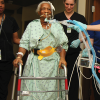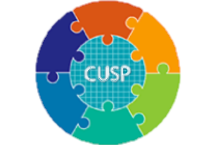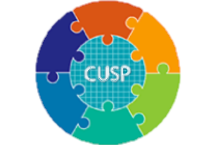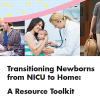National Healthcare Quality and Disparities Report
Latest available findings on quality of and access to health care
Data & Analytics
- Data Infographics
- Data Visualizations
- Data Tools
- Data Innovations
- All-Payer Claims Database
- Consumer Assessment of Healthcare Providers and Systems (CAHPS®) Program
- Healthcare Cost and Utilization Project (HCUP)
- Medical Expenditure Panel Survey (MEPS)
- National Healthcare Quality and Disparities Report Data Tools
- Network of Patient Safety Databases
- AHRQ Quality Indicator Tools for Data Analytics
- Surveys on Patient Safety Culture
- United States Health Information Knowledgebase (USHIK)
- Data Sources Available from AHRQ
Tools
The Agency for Healthcare Research and Quality (AHRQ) offers practical, research-based tools and other resources to help a variety of health care organizations, providers, and others make care safer in all health care settings.
Toolkit for Preventing CLABSI and CAUTI in ICUs
This customizable, educational toolkit aims to help hospital intensive care units (ICUs) reduce rates of central line-associated bloodstream infection (CLABSI) and catheter-associated urinary tract infection (CAUTI). Using the Comprehensive Unit-based Safety Program (CUSP) and other evidence-based practices, the toolkit helps ICUs assess their current CLABSI and CAUTI prevention efforts, has resources to help ICUs overcome common challenges in infection-reduction efforts, and provides the clinical and cultural guidance to make changes needed to decrease CLABSI and CAUTI rates.
Date Published: Setting of Care: Hospital
Toolkit for Using the AHRQ Quality Indicators
This toolkit is designed to support hospitals in assessing and improving the quality and safety of care they provide. The QI Toolkit is designed as a flexible, modifiable set of tools that can be selected according to a hospital's needs.
Date Published: Setting of Care: Hospital
Toolkit to Engage High-Risk Patients In Safe Transitions Across Ambulatory Settings
A Toolkit to Engage High-Risk Patients in Safe Transitions Across Ambulatory Settings provides strategies, tools, and education to help staff who work in ambulatory care facilities prepare patients for new and follow-up appointments in order to prevent errors during transitions in care.
Date Published: Setting of Care: Ambulatory Care
Toolkit To Improve Safety for Mechanically Ventilated Patients
Hospital intensive care unit (ICU) staff can use the toolkit to apply the proven principles and methods of AHRQ's Comprehensive Unit-based Safety Program (CUSP) to reduce complications for mechanically ventilated patients.
Date Published: Setting of Care: Hospital
Toolkit To Improve Safety in Ambulatory Surgery Centers
The Toolkit To Improve Safety in Ambulatory Surgery Centers helps ambulatory surgery centers make care safer for their patients. Ambulatory surgery centers can use the toolkit to apply the proven principles and methods of AHRQ's Comprehensive Unit-based Safety Program to prevent surgical site infections and other complications and improve safety culture in their facilities.
Date Published: Setting of Care: Hospital, Outpatient Surgery
Toolkit To Promote Safe Surgery
This toolkit helps surgical units improve safety culture and reduce surgical site infections and other complications.
Date Published: Setting of Care: Hospital, Outpatient Surgery
Tools for Reducing Central Line-Associated Blood Stream Infections
These tools help implement evidence-based practices and eliminate central line-associated blood stream infections (CLABSI). When used with the CUSP (Comprehensive Unit-based Safety Program) Toolkit, these tools dramatically reduced CLABSI rates in more than 1,000 hospitals across the country.
Date Published: Setting of Care: Hospital, Outpatient Surgery
Tracking and Improving Screening for Colorectal Cancer
This toolkit includes materials for planning an intervention, identifying a central entity to manage the program, educating medical practices about the program, and communicating with patients.
Date Published: Setting of Care: Ambulatory Care, Hospital
Transitioning Newborns From NICU to Home: A Resource Toolkit
This toolkit provides customizable resources for hospitals that wish to improve safety when newborns transition home from the neonatal intensive care unit by creating a health coach program.
Date Published: Setting of Care: Hospital















